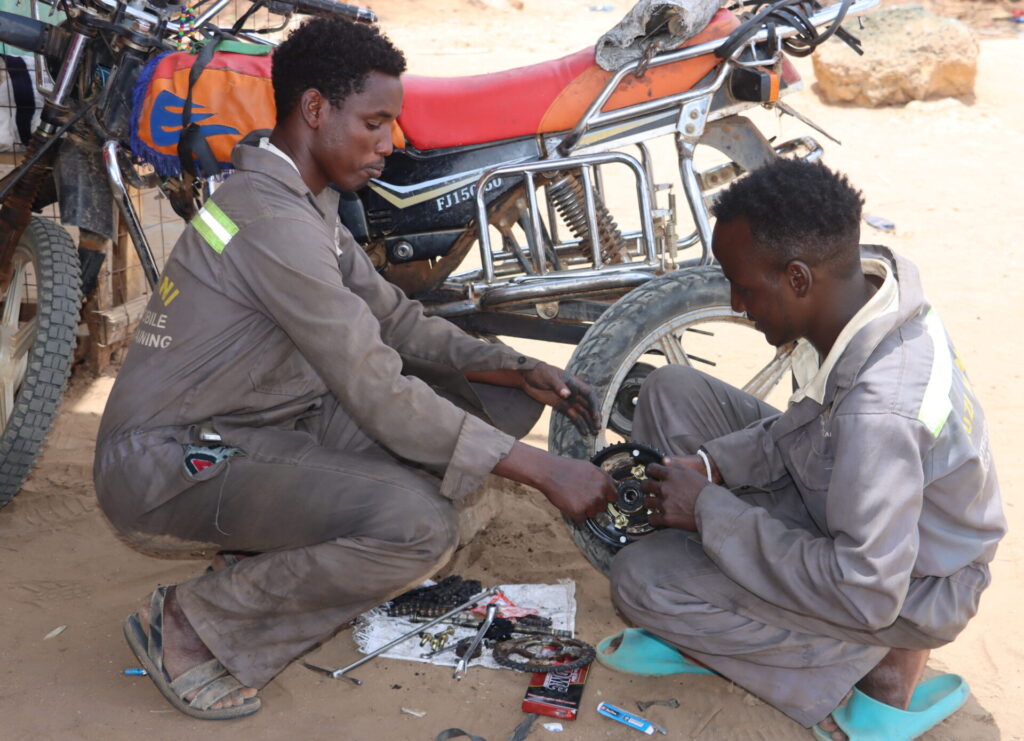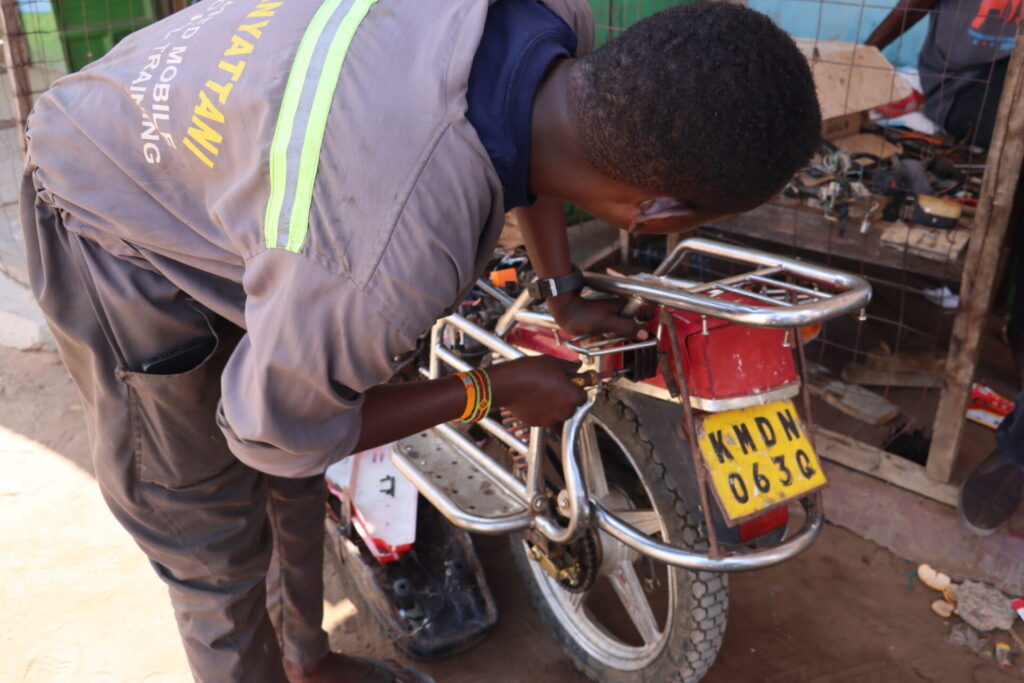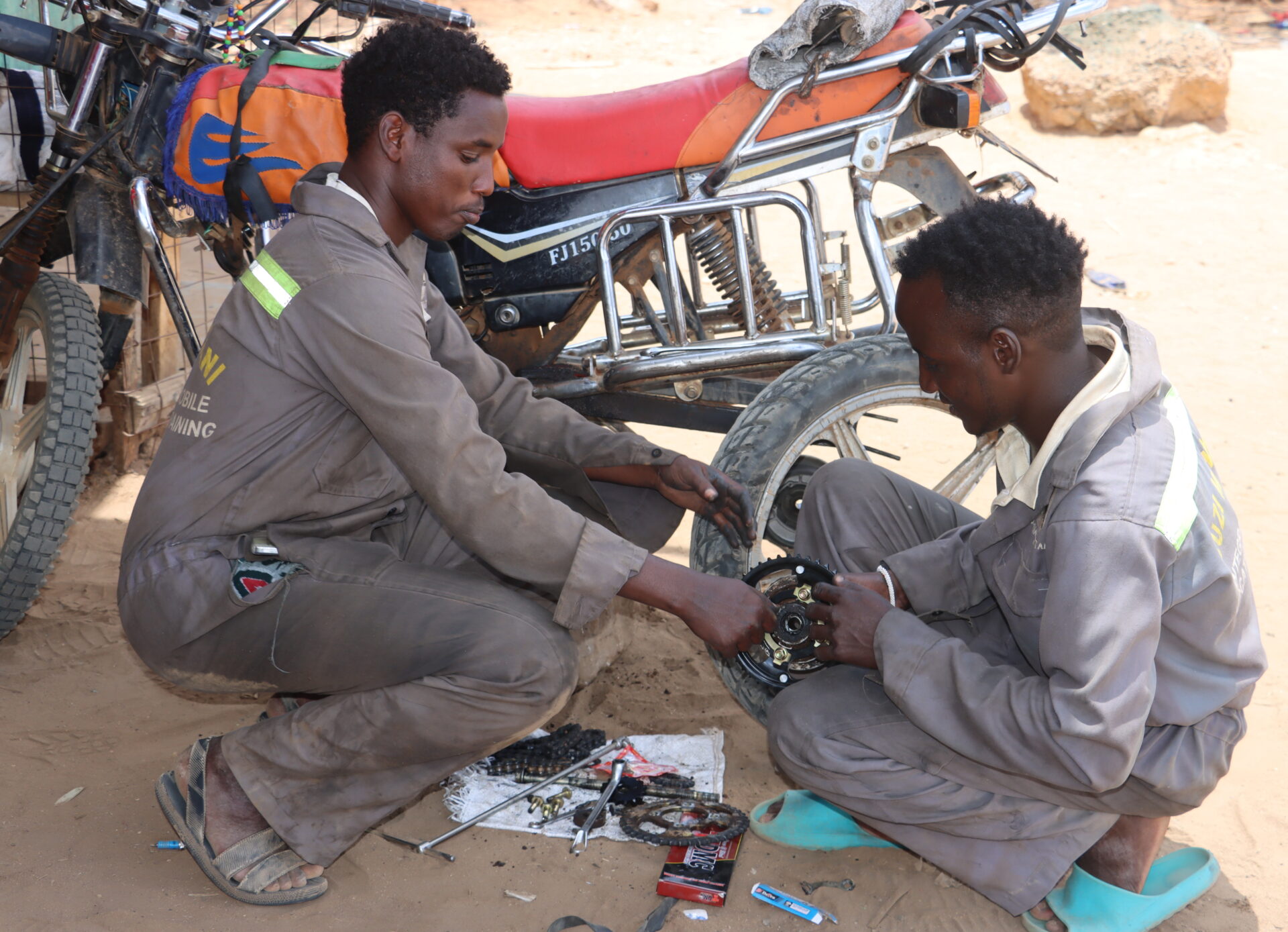
Business partnerships have long been a powerful force for success, allowing individuals to pool their strengths, share risks, and create something far greater than what could be achieved alone. In many ways, collaboration can be the cornerstone of building sustainable ventures, particularly in regions where access to resources and capital is limited.
Settled under the shade of an iron sheet roofing, a small team of young men huddles together, tools in hand, working on a motorbike – Shadrack Kinyanjui, Amos Legalhaile, Joram Lemirgichan & Daddy Lemerketo are Ujuzi Manyattani graduates who, with the support of Basecamp Foundation, completed a three-month training in motorcycle repair and maintenance.
Shadrack Kinyanjui, known by his Samburu moniker ‘Lekokoyo,’ was born and raised in Sereolipi. He is the drive behind this partnership, and before joining the program, he was a boda boda operator. His motorbike would often break down in remote areas, far from any garage, leaving him frustrated and stranded. Each time, he would incur additional costs for labor and transport of mechanics who had to come from far away. The worst part? He could do nothing about it. “There were times I would come across a fellow rider stuck in the middle of nowhere with a broken-down bike, but I couldn’t help them. I had no idea how to fix anything,” Shadrack recalls.
Driven by the desire to solve these problems, Shadrack yearned for skills that could help him and others in his community. When he heard about Ujuzi Manyattani, a program that brings vocational training directly to the communities, he jumped at the opportunity, a decision that turned out to be life-changing.
After graduating in June 2024, Shadrack didn’t just hold onto his toolkit—he had a bigger vision. Noticing a gap in qualified mechanics in his home area, he gathered his three friends, all fellow graduates from the course, and together, they set up a small garage for repair services outside an auto spares shop. “Working together has been a good decision,” Shadrack says. “Shared responsibilities and helping each other out. One may be good at wiring, while the other at fixing clutches.”

However, the path wasn’t easy. The young men faced skepticism from locals who hesitated to trust their expertise, fearing they were too new to the craft. But they’ve persisted, working hard to prove their worth. On good days, they receive 5-6 customers, earning around KES 1,000 per day each, while on slower days, they focus on smaller jobs like fixing punctures for KES 100. They also began offering mobile services, traveling to remote areas to fix bikes where other mechanics couldn’t reach. It’s this determination to serve their community that has slowly earned them a growing customer base.
Their business is still young, but their dreams are big. They’re currently training a fellow youth, passing on the skills learned through Ujuzi Manyattani. In the future, they dream of expanding their business, opening their own auto spares shop, and eventually establishing individual enterprises, continuing to grow and share in each other’s success.
What started as a three-month course has become a lifelong empowerment and entrepreneurship journey for these four young men. Through collaboration and a shared vision, they are not just fixing bikes but also breaking the cycle of poverty and unemployment in their community.

